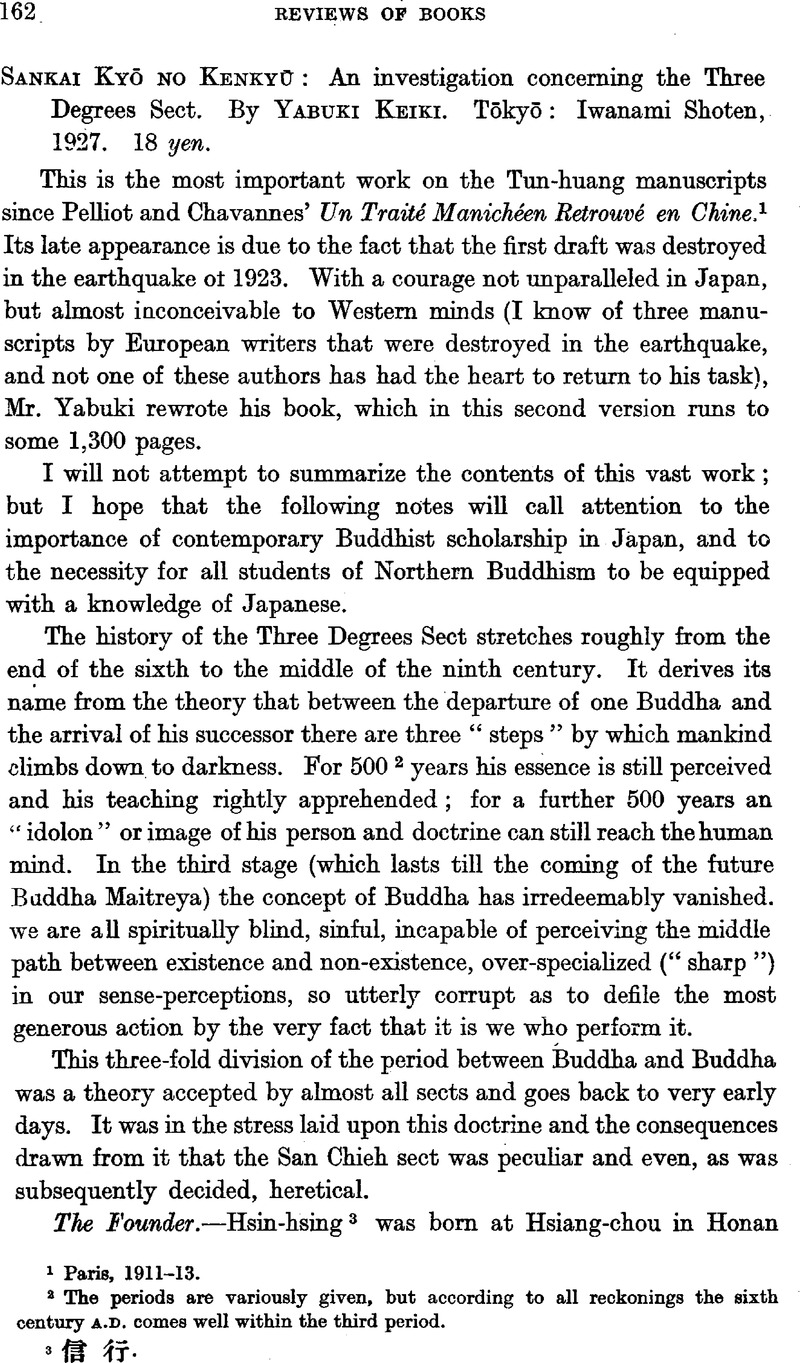No CrossRef data available.
Article contents
Sankai Ky No Kenky: An investigation concerning the Three Degrees Sect. By Yabuki Keiki. Tky: Iwanami Shoten, 1927. 18 yen.
Published online by Cambridge University Press: 24 December 2009
Abstract

- Type
- Reviews of Books
- Information
- Bulletin of the School of Oriental and African Studies , Volume 5 , Issue 1 , February 1928 , pp. 162 - 169
- Copyright
- Copyright School of Oriental and African Studies 1928
References
page 162 note 1 Paris, 1911-13.
page 162 note 2 The periods are variously given, but according to all reckonings the sixth century A.D. comes well within the third period.
page 162 note 3 Arhat, Saint.
page 163 note 1 Owing to the theory that plants cannot feel and that life is consciousness, the vegetable world was specifically excluded.
page 165 note 1 It was considered an essential of alms-giving that it should be entirely impersonal, the donor neither disclosing his name nor having any control over the way in which his gifts were used.
page 165 note 2 Arhat, Saint.
page 165 note 3 Meditation was, however, theoretically discouraged by the sect.
4 The Chng Yan Lu.
page 166 note 1 One excellent practice of the sect deserves mention. In quoting they scrupulously distinguish between the text, the purport, or general sense of the text and human opinion, i.e. the commentaries.
page 167 note 1 It is, for example, unlikely that Buddhism derived the name from Manicheism.
page 168 note 1 The earliest Paradise scripture that survives in the Chinese Tripitaka is the Akshobhya Stra, translated in A.D. 147. Whether An Shih-kao's translation of the Amtbha Stra (attributed to the same time) ever existed is doubtful, in view of the extremely conflicting evidence about the extent of his activities.


